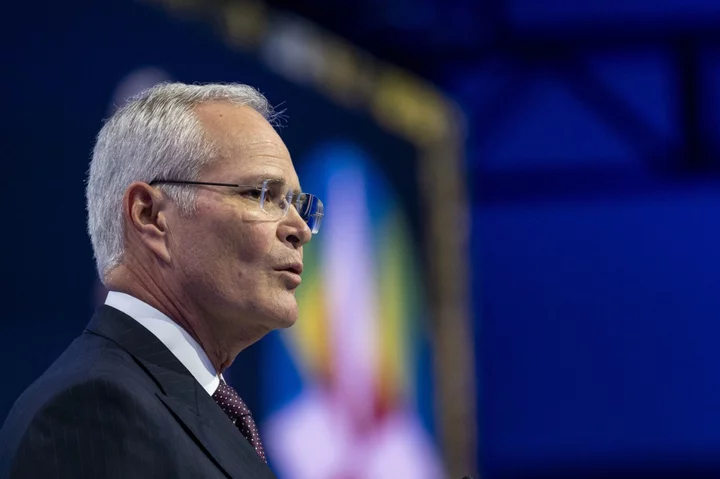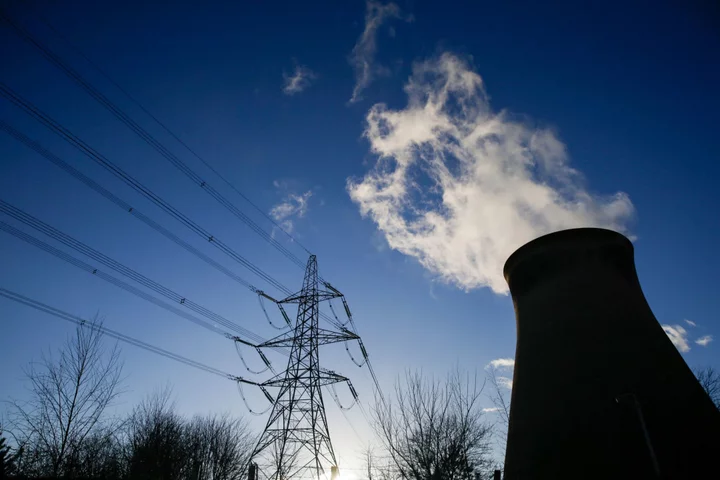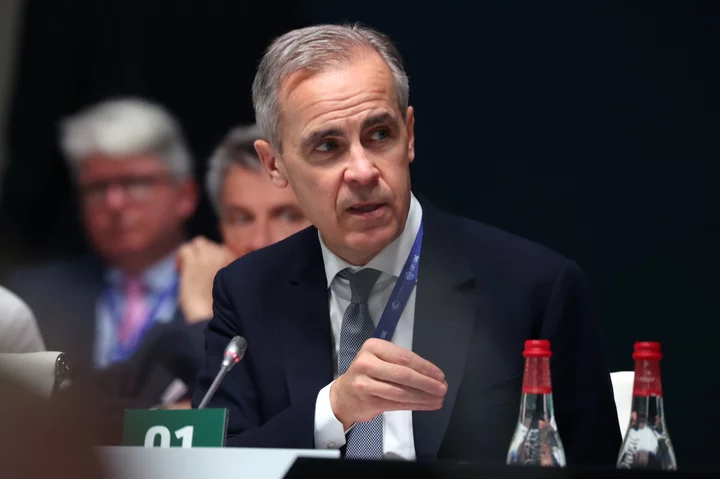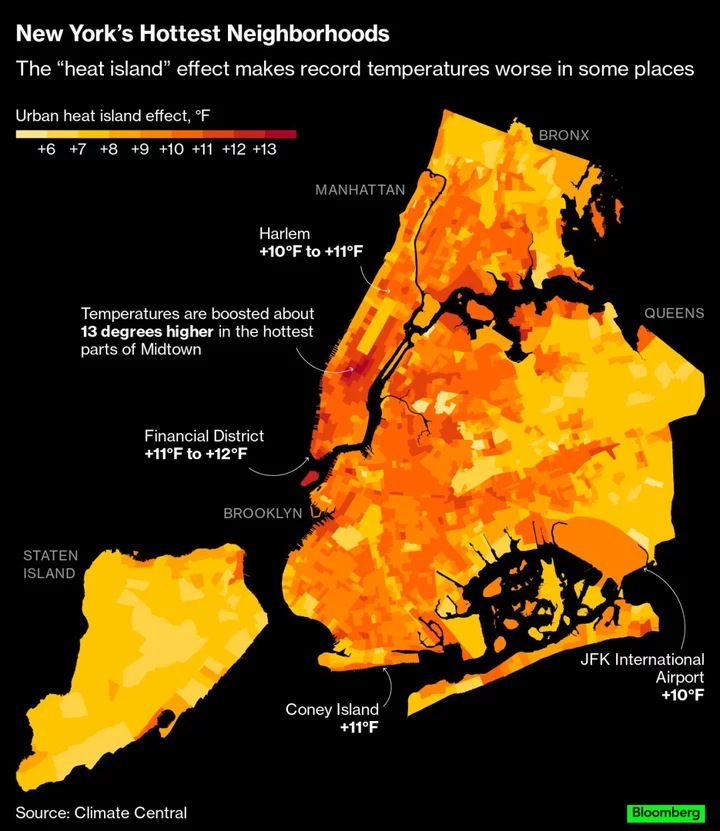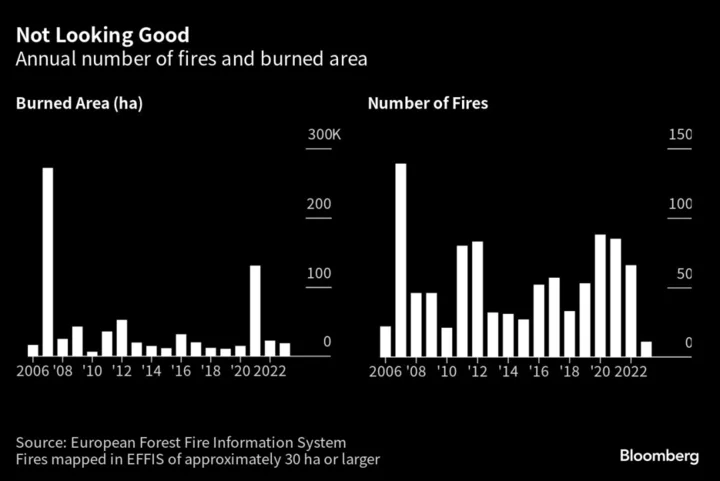Exxon Mobil Corp. CEO Darren Woods cuts a strange figure at the COP28 climate summit — an oil executive moving among thousands of government officials, business leaders and activists gathered in Dubai to limit global temperature rise.
After all, he’s the head of the largest American oil and gas company — villainized by some environmentalists for decades denying the fossil fuel’s contribution to climate change.
But at this UN climate conference, hosted by the United Arab Emirates and led by another industry executive — the head of the Abu Dhabi National Oil Co. — Woods said he is finding open doors.
“The complexity of the challenge of transitioning the energy system is coming more into focus,” with “a much more diverse group of people recognizing this is a hard problem to solve” and “we need big companies to help with that,” Woods said in an interview at the UN conference.
There’s a greater recognition that the energy transition will require a breadth of technologies, including hydrogen production and carbon capture, Woods said. “That opens the door for us.”
Exxon’s balance sheet and technical know-how means the oil giant can contribute to the UN climate talks and a global energy transition that must involve a range of solutions, Woods said.
“We have to continue to meet the needs of society and reduce emissions — and frankly, we have the skills, the capabilities to actually do that, the balance sheet to actually fund it,” Woods said. “There’s an opportunity and a willingness now for people to engage in those discussions.”
Woods is the first Exxon chief executive to ever attend one of the UN Conference of Parties on climate change since the summits began in the early 1990s. But at this year’s meeting, he’s not alone. Other oil bosses, including Shell’s Wael Sawan, turned up to sign a pact among 50 oil companies to reduce emissions from their own operations.
Sultan Al Jaber, the president of COP28, has argued that even as the world develops more carbon-free power, oil and gas will remain part of the energy system for decades to come — and making them as clean as possible is essential to avert warming.
Many environmentalists strenuously disagree. Months before the conference opened, activists called for Al Jaber’s ouster as president and said having oil executives at the summit was tantamount to welcoming foxes inside the henhouse.
Days before the conference opened, there were reports Al Jaber sought to advance oil and gas deals during meetings with foreign governments ahead of COP28 based on leaked memos released by the British Broadcasting Corp. in collaboration with the Center for Climate Reporting. Al Jaber has denied the allegations.
Oil executives have no business at a climate conference, said Collin Rees, US program co-manager at Oil Change International.
“Treating them as legitimate partners in the energy transition is dangerous,” especially given the industry’s “long history of nothing but delay and doubling down on their core business model of expanding fossil fuels,” he said. Even so, their presence is “a sign of how the conversation has progressed,” and “now they are being forced to defend themselves in public.”
For Exxon, joining the Oil and Gas Decarbonization Charter is consistent with work the company is already doing to pare methane emissions, Woods said. But the venture — which brings in 29 national oil companies — is seen as important to driving broad progress, even among firms that don’t face the same regulatory and investor pressure to clean up.
“It’s important that we get as much of the industry committed to raising the bar,” Woods said.
Exxon is pursuing an array of ventures that stand to benefit from the Inflation Reduction Act, the sweeping climate law enacted in the US last year, including a Gulf Coast hydrogen-production project that has secured as much as $1.2 billion in government support.
And though President Joe Biden has had sharp words for oil producers, Woods said he sees signs of a balanced approach. “There’s a genuine effort by the Biden administration to strike the right balance, to focus and drive emission reductions and improve greenhouse gas emissions, but, at the same time, a recognition of the important role oil and gas plays.”
Author: Jennifer A. Dlouhy

